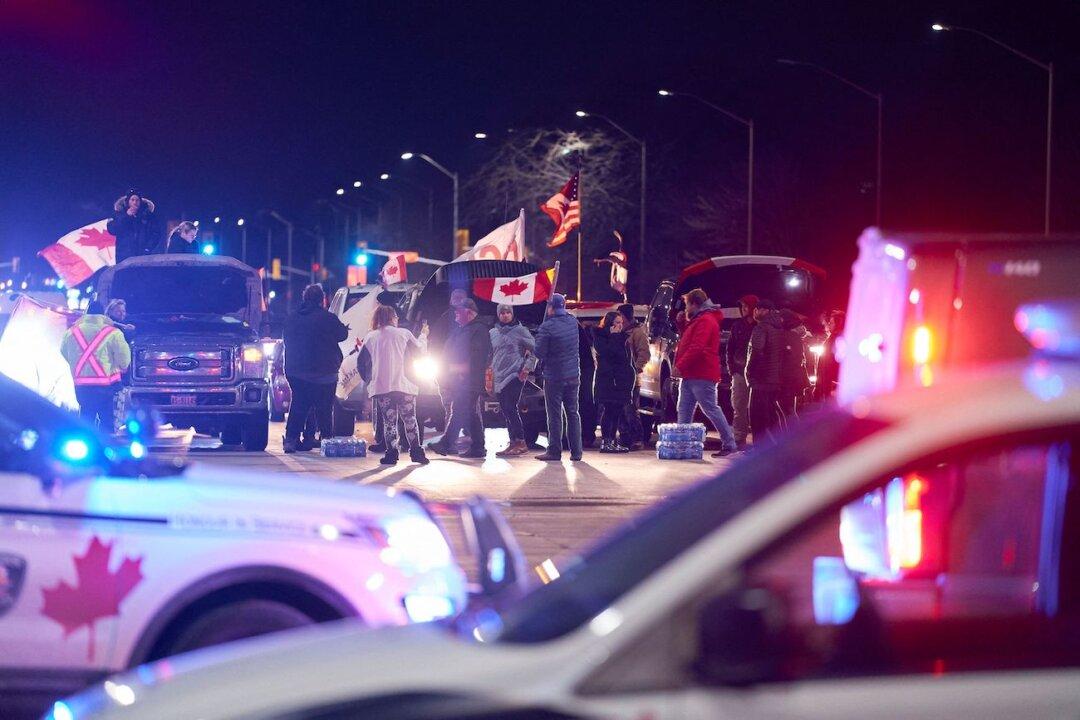The Biden administration has urged Canada’s government to use its federal powers to respond to the protests that are blocking access points along the countries’ mutual border, the White House said.
Homeland Security Secretary Alejandro Mayorkas and Transportation Secretary Pete Buttigieg spoke separately with their Canadian counterparts, “urging them to use federal powers to resolve this situation at our joint border and offering the full support of our Homeland Security and Transportation departments,” a White House official told CNN on Feb. 10.




